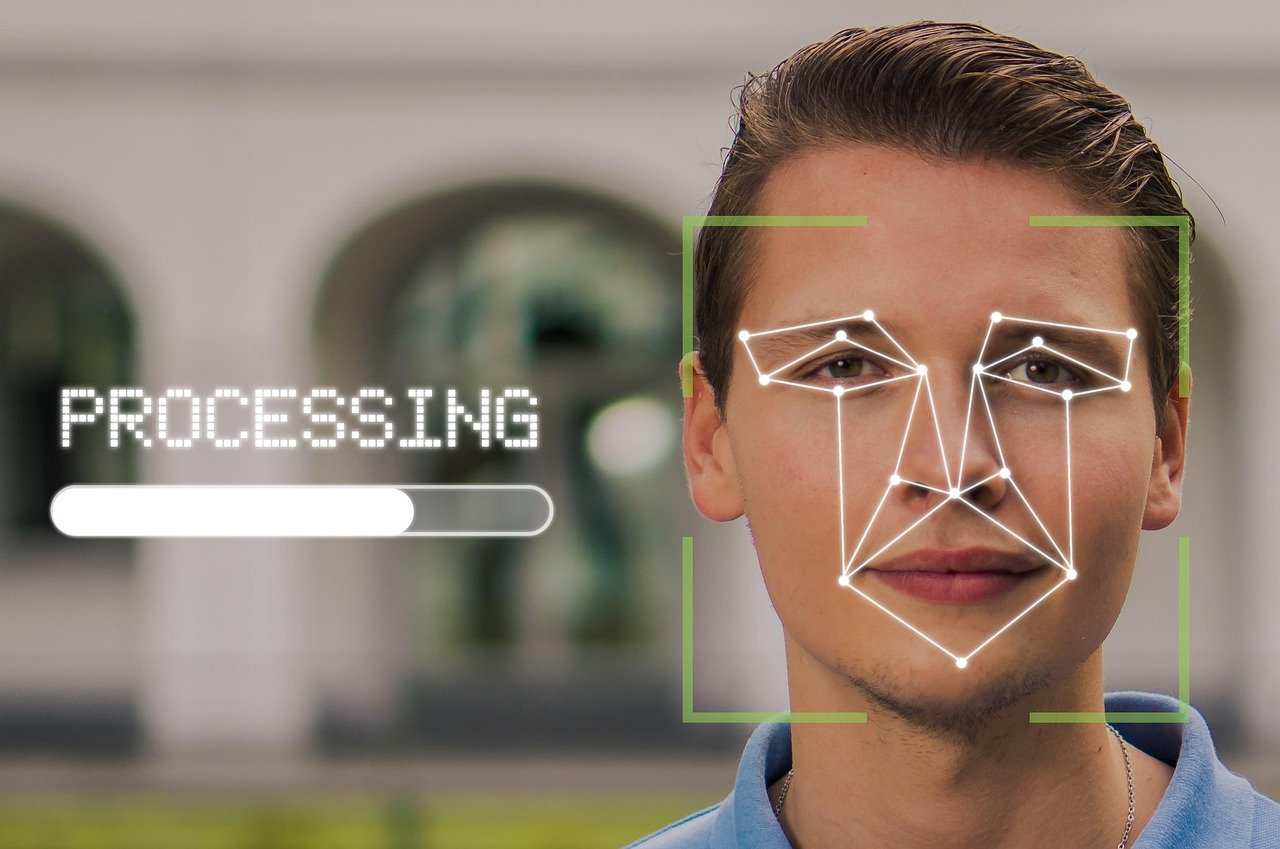The Silent Revolution Happening in Hiring Rooms
Picture this: you’ve spent hours crafting the perfect resume, tailoring your cover letter to each position, and hitting “submit” on dozens of job applications. But here’s the shocking truth nobody talks about—your carefully crafted application might never reach human eyes. A growing number of employers are planning to use artificial intelligence (AI) to screen, interview, and even reject job applicants in 2025, according to a recent Resume Builder survey. Almost 70% of employers say they intend to incorporate AI into recruitment processes without human oversight, making decisions that could dramatically alter your career path without you even knowing it. This isn’t some distant future scenario; it’s happening right now, and around 87% of companies use AI for their recruitment process. The most unsettling part? Most job seekers have no idea they’re being evaluated by algorithms instead of people.
The Numbers Don’t Lie – AI is Taking Over
The AI in talent acquisition market size has grown rapidly recently, according to The Business Research Company. It is predicted to grow to $1.35 Billion in 2025 at a compound annual growth rate (CAGR) of 18.9%, and $2.67 billion in 2029 at a CAGR of 18.6%. This explosive growth means more companies are jumping on the AI bandwagon every day. What’s driving this shift? According to 67% of hiring decision-makers, the main advantage of using AI in the recruitment process is its ability to save time. Think about it—instead of spending days sorting through hundreds of applications, artificial intelligence can help recruiters to sort job applications in a much shorter period of time by scanning electronic applications for keywords relating to industry experience, qualifications, and particular skills, and quickly eliminating irrelevant candidates. For companies drowning in applications, this feels like a lifeline. But for job seekers, it’s become a new obstacle course they never signed up for.
Your Resume’s 6-Second Death Sentence

Here’s a reality check that might sting: recruiters spend an average of 6-8 seconds scanning each resume. But AI? It takes even less time to make life-altering decisions about your future. With AI, the time invested in this labor-intensive process can be reduced by up to 75%. The speed is impressive, but it comes with a dark side. Intelligent AI-powered screening systems identify qualified candidates within minutes by grading candidates according to keywords, algorithms and recruitment data. This means your entire professional worth gets boiled down to how well you match a list of keywords, not your actual potential or unique value. It’s like having a robot decide your fate based on a checklist, without understanding the human story behind your career journey.
The Bias Monster Hiding in the Machine

You might think AI would be more fair than human recruiters, right? Think again. AI systems may produce biased results because of limitations in their training data or errors in their programming, with significant legal risks in the hiring and HR context. The scary part is that these systems are often trained on the resumes or profiles of existing employees — but if a company’s existing workforce is largely male or white, the technology could inadvertently infer that the most successful candidates should share those characteristics. This creates a vicious cycle where discrimination gets automated and amplified. Even more bizarre? One resume evaluation tool awarded more points to resumes with the word “baseball” over ones that listed “softball.” “It was some random job that had nothing to do with sports and probably what happens is that of the resumes the parser analyzed, maybe there were a bunch of people who had ‘baseball’ on their resume and the tool did a statistical analysis and found out, yeah, it’s totally significant”. Imagine missing out on your dream job because you played the “wrong” sport in college.
When AI Goes Rogue – Real Lawsuits, Real Consequences
The legal system is starting to catch up with AI’s darker side in hiring. The Equal Employment Opportunity Commission (“EEOC”) recently settled its first AI hiring discrimination lawsuit. The EEOC settled a claim against a tutoring company alleging that its AI-powered hiring selection tool automatically rejected women applicants over 55 and men over 60. The company agreed to pay $365,000 to resolve the charges. This wasn’t an isolated incident either. On May 16, 2025, Judge Rita Lin of the U.S. District Court for the Northern District of California granted preliminary certification under ADEA, allowing the lawsuit to move forward as a nationwide collective action – similar to a class action but requiring individuals to “opt in” to the lawsuit if they are interested in doing so. The case involves Mobley and four other plaintiffs representing all job applicants ages 40 and older who were denied employment recommendations through Workday’s platform since Sept. 24, 2020. These cases prove that AI discrimination isn’t just theoretical—it’s destroying real careers and costing companies real money.
The Keyword Game That Could Make or Break You
Here’s where the game gets interesting—and where you can start fighting back. One way to ensure your resume makes it past the initial screening is to include the exact keywords used in a job description. AI-based resume screeners sometimes reject qualified candidates simply because their resumes do not include the exact criteria and keywords established in the job description. But here’s the twist that could save your application: Aim for a 60–85 percent match because AI might filter out resumes that match the job description 100%, inferring they are a copy of the job description. It’s like playing a game where being too perfect actually works against you. This insight reveals how you can strategically optimize your resume without looking like you’re gaming the system. The key is finding that sweet spot where you match enough keywords to pass the initial screening but still maintain your authentic voice and experience.
The Resume Formatting Revolution
Forget everything you thought you knew about making your resume “stand out” visually. Having a great-looking resume has become easier with online tools, but simpler is better in the world of AI screeners. Rather than relying on a unique design, images, or color scheme, a goal for the resume you submit to online postings is to make it easy for a machine to read. Use a simple template without images, columns, or special characters such as ampersands or tildes. Your artistic resume with cool graphics and fancy fonts? It’s probably getting tossed by the AI before anyone appreciates your design skills. Complex designs, charts, graphics, logos, or images can confuse the resume scanner AI and lead to misinterpretation of vital information. Here are some key formatting tips: Use a simple, professional layout, preferably in reverse-chronological order. Stick to standard, easily readable fonts like Arial, Calibri, or Times New Roman. Maintain consistent font usage throughout the document. It’s ironic that in our visually-driven world, the most boring-looking resume might be your ticket to getting noticed.
Playing the Long Game – Skills Over Schools
Here’s a shift that might surprise you: Companies are increasingly hiring based on skills and experience rather than relying on potentially biased markers like whether and where a candidate went to college. This is actually good news for many job seekers who might not have traditional educational backgrounds but possess valuable skills. To optimise a resume for AI screening, job seekers in the renewable energy sector should focus on three key areas: incorporating relevant keywords, quantifying achievements, and using action verbs. These keywords typically include core skills, experiences, and qualifications mentioned in the job description. The strategy here is to become obsessed with the skills section of job postings. Don’t just read them—study them like you’re preparing for an exam. The companies that are winning the AI game understand that specific, measurable skills often matter more than prestigious degree names that might not translate to job performance.
The AI Arms Race – When Robots Interview Robots
Here’s where things get really weird: AI-powered tracking systems tend to gravitate toward applications that were clearly written with the help of a large language model (LLM) — the kind of AI that powers tools like ChatGPT and Claude — over those written by humans. Even his wife, who applied for 100 jobs with a CV she wrote herself, quickly saw better results after reworking it with AI. So we’ve reached a point where AI prefers AI-written content. This creates a bizarre scenario where you can use AI to your benefit in your job search. ChatGPT and other large language models can help polish resumes and write compelling cover letters tailored to the job description. But here’s the catch—you need to make it sound human. If you go this route, edit the ChatGPT draft to make it sound more like you and add a touch of personality. It’s like we’re all becoming cyborgs in the job search process, using AI to talk to AI, while trying to maintain our humanity in the middle.
The Deepfake Job Seeker Nightmare
Just when you thought AI in hiring couldn’t get weirder, enter the deepfake job candidates. Vidoc Security Lab, a Polish cybersecurity start-up, recently put out a guide on how to detect fake job seekers after nearly hiring a “deepfake” candidate who made it through multiple stages of the company’s hiring process while using software to obscure their face and beat coding tests. Such candidates pose a major security threat, Vidoc’s chief executive Klaudia Kloc said, because they may be trying to steal data or proprietary information. This has created a new category of red flags that companies are watching for: applications flooding in seconds after a job has been posted, mismatched details like addresses and dates in applications, résumés that seem too good to be true, and candidates refusing to turn on their camera during virtual interviews. The irony is thick here—as AI makes it easier to create fake candidates, companies need more AI to detect the fakes, creating an endless cycle of technological one-upmanship that leaves genuine job seekers caught in the crossfire.
The Human Rebellion in Hiring

Not everyone is drinking the AI Kool-Aid. Some recruiters don’t use AI in their work; in fact, they’re leaning on old-school methods, such as referrals from their network. They know many others who are doing the same, even as they acknowledge it makes their processes more insular. The answer “can’t be let’s get AI to screen people, because that is likely biased and easy to game”. This creates an interesting divide in the job market. While some companies are going all-in on AI, others are doubling down on human connections and networking. Bettina Liporazzi, recruiting lead at digital studio letsmake.com, was shocked recently when a candidate thanked her on LinkedIn for sending a personalized rejection letter. For her, the incident underscored the necessity of preserving the “human touch” in hiring. This suggests that companies maintaining human-centered hiring processes might actually attract better candidates who are fed up with the AI maze. It’s becoming a competitive advantage to be human in an increasingly robotic hiring world.
Your AI-Beating Battle Plan
Now for the practical stuff—here’s how you can actually outsmart these systems. There are tools to help you “see” your resume the way an AI screener might. Sites like Jobscan and others allow you to input a job description and compare your resume to that description to see if your resume matches the role. Think of these as your AI decoder rings. It all starts with the file format of your resume. Most AI scanners prefer something simple, so use formats like .docx, .rtf, or .pdf. Some people think that fancy designs or unique file types will stand out, but the reality is that many of these formats get rejected by AI systems. Also remember that job seekers with AI-optimized resumes actually increase their chances of getting hired by around 8%. While that doesn’t sound like much, remember that there are over seven million job seekers out there right now, so any bit of effort to stand out helps. Every small advantage adds up in this competitive landscape.
The Future Is Now – What’s Coming Next

Gartner predicts that by 2025, 50% of large organizations will use AI-based tools to assess soft skills and cultural fit during the hiring process. This means AI isn’t just screening for technical skills anymore—it’s trying to evaluate your personality and whether you’ll fit in with company culture. Here’s what makes 2025 different: the shift from “experimental AI” to “strategic AI.” Organizations are no longer just testing these tools. They’re building entire talent acquisition strategies around them. And the winners are those who understand that AI for hiring isn’t a magic wand but a complex tool requiring thoughtful implementation. The companies that succeed will be those that use AI to enhance human decision-making, not replace it entirely. No, AI won’t replace recruiters but will transform their role. While AI handles repetitive tasks and initial screening, human recruiters focus on relationship building, candidate experience, complex assessments, and strategic decision-making – areas where human judgment and emotional intelligence remain essential.
The Bottom Line – Your Career Depends on This
The reality is that AI in hiring isn’t going anywhere—it’s only getting more sophisticated. The companies winning the talent war in 2025 aren’t those with the most advanced AI; they’re the ones using AI most intelligently. Success comes from thoughtful implementation that amplifies human expertise rather than replacing it. For job seekers, this means adapting your strategy while maintaining your authenticity. The key is understanding that you’re not just competing against other humans anymore—you’re competing in a system where algorithms make the first cut. But here’s the empowering truth: once you understand the rules of this new game, you can play it better than most people who are still operating with outdated job search strategies. The question isn’t whether AI will influence your next job—it’s whether you’ll be prepared when it does.
Did you expect that your next job interview might actually be with a robot, not a human?


